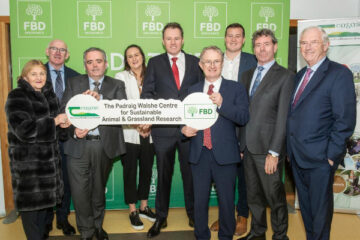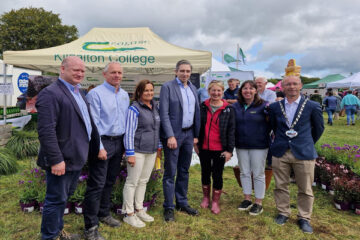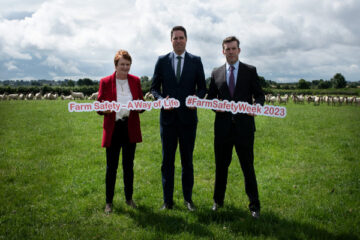Launching the IFA’s pre-Budget submission for fair and sustainable agri-food sector, IFA President Tim Cullinan said it provides a blueprint for Government to follow if it genuinely wants to ensure the future viability of Ireland’s largest indigenous sector.
Cullinan said at the launch, “farmers across all sectors are facing an increasingly uncertain future. Increasing regulation, Brexit-related trade disruption, and the prospect of substantial cuts in direct payments due to CAP reforms means Irish farming is in a perilous position.”
“Now is the time for Government to step up and put action and money behind the rhetoric. IFA is seeking co-financing to ensure that Pillar II schemes such as Areas of Natural Constraint (ANCs); Green Low-Carbon Agri-Environmental Scheme (GLAS); Targeted Agricultural Modernisation Scheme (TAMS); Beef Data and Genomics Programme (BDGP – suckler cows); the Sheep Welfare Scheme and Organic Farming Scheme; are properly funded. We are seeking €300 per suckler cow, €30 per ewe and €300m for ANCs. In addition, we need a new scheme for tillage farmers to stop the exodus from this sector.”
“The Government gave a clear commitment that it would ring-fence €1.5bn of carbon tax receipts for an agri-environment scheme, referred to in the Programme for Government as ‘REPS-2’. We are still waiting for this commitment to be honoured.”
The IFA President went on to say abou the agri-food sector, “IFA has made it clear that farmers are eager to be part of the climate solution. Accelerated capital allowances and Value-Added Tax (VAT) exemptions on the purchase of emissions-efficient investment will help farmers to play their role in contributing to the sector’s climate change targets.”
“Renewal of the Young Trained Farmer Stamp Duty Relief post-2021 is also needed to encourage farm transfer and generational renewal.”
IFA Farm Business Committee Chair Rose Mary McDonagh said, “in June, IFA held a nationwide Day of Action to highlight farming’s contribution to the rural economy. Our message to Government has not changed. The sustainable growth of our sector needs policies that encourage investment at farm level, and recognise the role of agriculture in achieving balanced regional development and viable farm incomes”.
“We need significant taxation supports, in particular through investment in emissions-efficient equipment and the removal of discrimination in our tax system for the self-employed.”
IFA Rural Development Chairman Michael Biggins said farm schemes must remain a central part of Government policy, particularly for the low-income dry stock sector.
Biggins stated, “direct payments are a huge part of family farm incomes. Targeted schemes are increasingly important. Expenditure on TAMS is currently behind target, with approximately 60% of the revised allocation of €523m spent to date. There needs to be increased flexibility along with the inclusion of additional qualifying investments to ensure all funding is drawn down.”
As part of IFA’s campaign, officers will meet TDs & Senators at local level in the coming weeks.
Source: IFA



